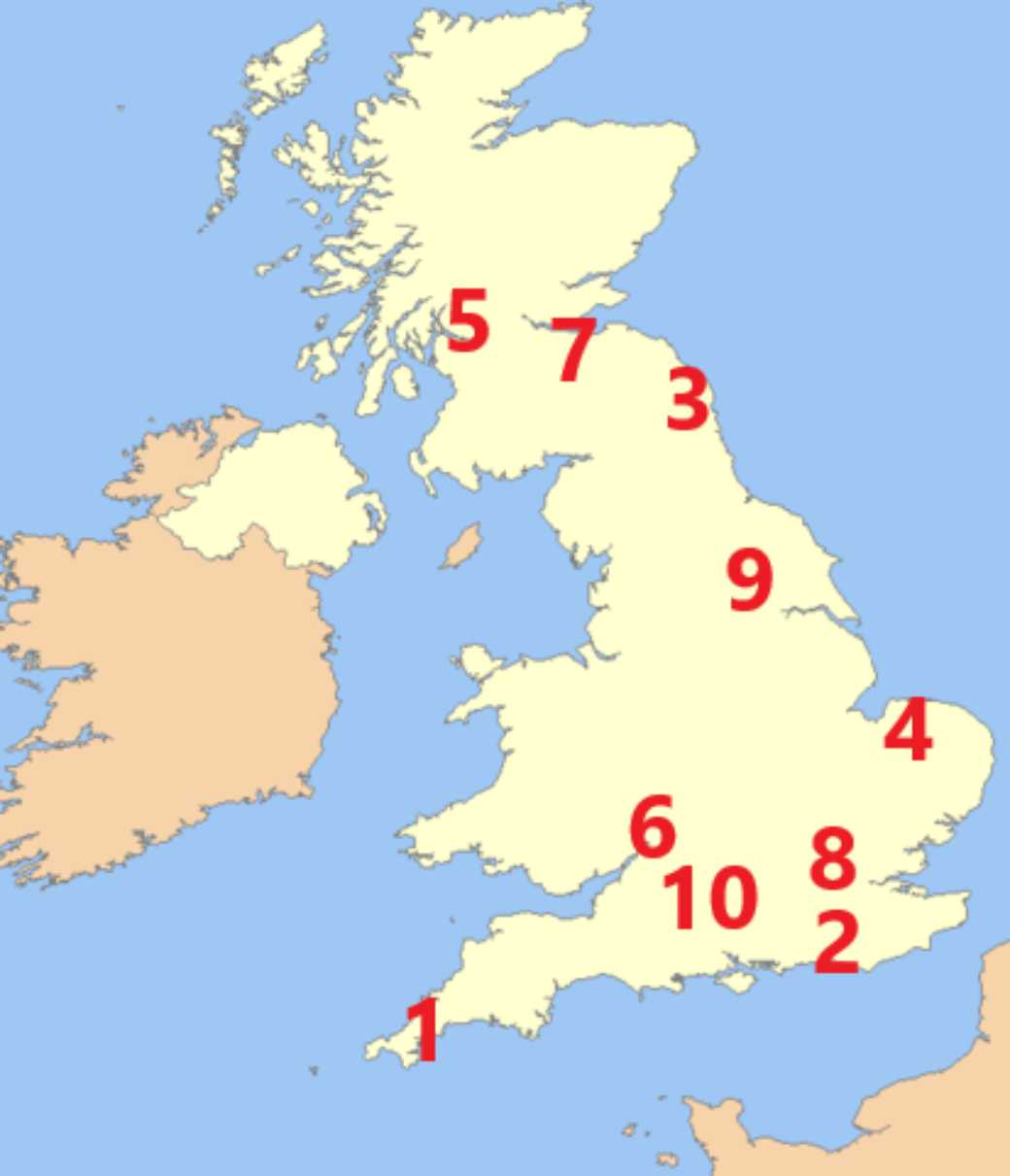
Locating Dukes Trivia Quiz
This quiz has ten of the dukedoms of the UK marked on a map. You need to match the holder of the title (in 2024) with the location of the dukedom's name, which isn't always the same as the location of the family seat.
A label quiz
by rossian.
Estimated time: 3 mins.
